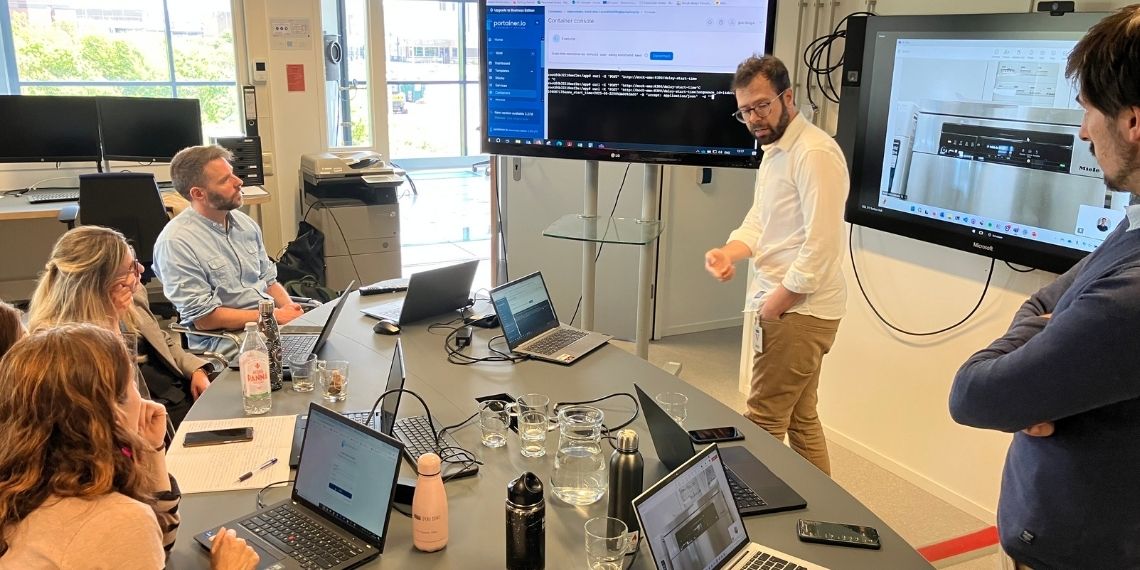Recently, INESC TEC researchers collaborated with the Smart Grid Interoperability Laboratory of the Joint Research Centre (JRC) – the EC’s science and knowledge service that supports public policy development – to train the technical staff in semantic interoperability, a key technology for the digitalisation of Europe’s energy sector.
The initiative was led by INESC TEC researchers Fábio Coelho and Vasco Campos, following on from the European project InterConnect, and included the installation of a test environment at the JRC laboratory. This allows for experimentation with and validation of the Semantic Interoperability Framework (SIF) using smart household appliances. After an initial exchange of ideas, the training began in Petten, the Netherlands, before moving to Porto for a series of demonstrations.
“This framework is a set of digital platforms combined with energy sector standards that ensures different information systems ‘speak the same language’. In this case, we presented the operation of SIF applied to smart appliances from brands with a strong presence in the European market, such as Miele, Bosch, and Ariston. To demonstrate how this tool would perform in a real-world situation, we ran a live demonstration with appliances from INESC TEC’s x-Energy laboratory, one of the Institute’s research infrastructures,” explained Vasco Campos.
As the European Commission’s scientific service, the JRC’s mission is to provide solid evidence to support policymaking in areas as diverse as energy, climate, food security, health, and digital innovation. The partnership with INESC TEC strengthens the adoption of open and interoperable technological solutions, in line with the European strategy for energy transition and digital transformation.
“This collaboration is an important step because it shows how scientific knowledge generated in projects like InterConnect can be directly transferred to European institutions that shape policy. By training JRC technical staff, we ensure they are equipped to test and validate interoperable technologies that will be essential to the digitalisation of the European energy sector,” added the researcher.
This is a clear sign that Europe perceives interoperability not only as a technical concept, but as a central element in building more flexible, inclusive, and sustainable energy markets.
The researcher mentioned in this news piece is associated with INESC TEC.


 News, current topics, curiosities and so much more about INESC TEC and its community!
News, current topics, curiosities and so much more about INESC TEC and its community!